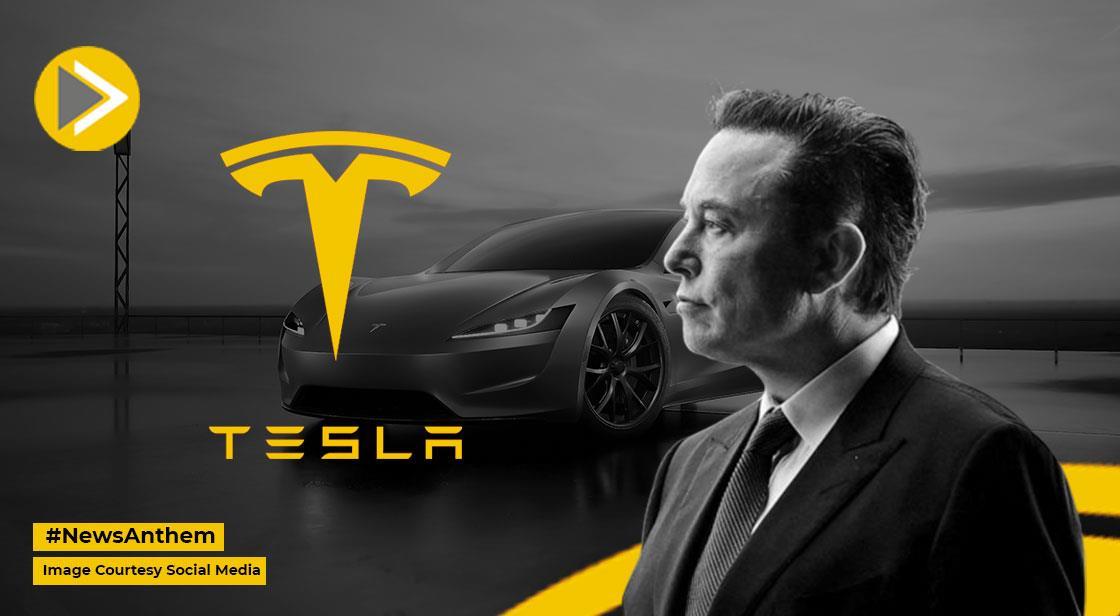Tesla Could Manufacture EVs in India Through Local Partnerships

News Synopsis
The electric vehicle (EV) industry in India is abuzz with speculation about Tesla’s entry into the Indian market. Initially, reports suggested that Tesla would set up its own manufacturing plant in India. However, subsequent updates indicated that the Elon Musk-led EV giant planned to import vehicles directly from Germany instead.
Further, discussions were rumored between Tesla and Tata Motors regarding a potential partnership. Now, fresh reports from Autocar Professional indicate that Tesla is exploring contract manufacturing opportunities with multiple Indian and Japanese automakers to assemble its EVs in India.
Tesla Could Assemble EVs in India Through Local Partnerships
According to Autocar Professional’s sources, Tesla has initiated discussions with multiple automobile companies that already have manufacturing facilities in India. The company is exploring different options, including the possibility of assembling its vehicles at an existing plant owned by another automaker.
A potential manufacturing partnership between Tesla and an Indian or Japanese company would have far-reaching implications. If such an agreement is finalized, it could substantially reduce Tesla’s vehicle prices in India by eliminating high import tariffs. This would make Tesla’s EVs more competitive in the price-sensitive Indian market and could accelerate the company’s expansion in the country.
Both Tesla and its potential Indian manufacturing partners are currently assessing the feasibility of such a collaboration, carefully weighing the pros and cons before committing to a long-term deal.
Challenges Tesla Faces in India
While Tesla’s India expansion plans are progressing, the company still faces significant hurdles. One of the primary challenges is India’s high import tariffs on EVs, which currently stand at 110% for vehicles priced above $35,000.
To facilitate Tesla’s entry, the Indian government is reportedly considering a new EV policy, which would lower import tariffs to 15% for premium EVs. If this policy is implemented, it could be a game-changer for Tesla, making its imported models more affordable for Indian consumers.
Tesla’s Most Affordable EV and India’s Price Sensitivity
Tesla has reportedly been exploring the launch of an affordable EV in India, with a targeted price of under ₹25 lakh ($30,000). However, achieving this price point without setting up a local manufacturing plant would be a significant challenge. Tesla’s most budget-friendly offering, the Model 3, is currently priced at approximately ₹29.79 lakh ($30,000), making it difficult to cater to India’s price-sensitive market.
Given these challenges, Tesla’s decision to initially import vehicles from its Berlin plant remains a strategic move. However, if contract manufacturing in India materializes, it could pave the way for Tesla to produce more affordable EVs locally, making its vehicles more accessible to Indian consumers.
Why Contract Manufacturing Could Be Tesla’s Best Bet?
Tesla’s potential move towards contract manufacturing in India could offer several advantages:
1. Cost Reduction & Competitive Pricing
-
Manufacturing EVs locally will eliminate hefty import duties, significantly reducing Tesla’s retail prices in India.
-
The lower pricing will increase Tesla’s competitiveness against Indian EV manufacturers like Tata Motors and Mahindra.
2. Faster Market Expansion
-
Setting up a new Tesla plant in India could take years. However, partnering with an existing manufacturer would allow Tesla to enter the market quickly and efficiently.
-
This approach has been successful for several global automakers, who have leveraged local partnerships to penetrate emerging markets.
3. Government Support & Policy Incentives
-
The Indian government is keen on promoting EV adoption and has introduced policies such as FAME II (Faster Adoption and Manufacturing of Hybrid and Electric Vehicles) to support the industry.
-
By manufacturing locally, Tesla could benefit from government subsidies and incentives, further reducing costs.
Conclusion
Tesla’s strategy for entering the Indian electric vehicle market has evolved significantly over time. Initially planning to set up a manufacturing plant, the company later decided to import vehicles from Germany. Now, new reports suggest that Tesla is in talks with multiple Indian and Japanese automakers to explore contract manufacturing options.
If Tesla successfully partners with an Indian or Japanese company to assemble its EVs locally, it could substantially reduce its car prices by avoiding high import tariffs. However, scaling operations in India remains a challenge. The Indian government’s new EV policy, which could cut import duties from 110% to 15%, might be a crucial factor in shaping Tesla’s final decision.
As Tesla evaluates the feasibility of local production, the coming months will be critical in determining whether India will see locally assembled Tesla EVs at competitive prices. This move could redefine the premium EV market in India and set the stage for Tesla’s long-term success in the country.









